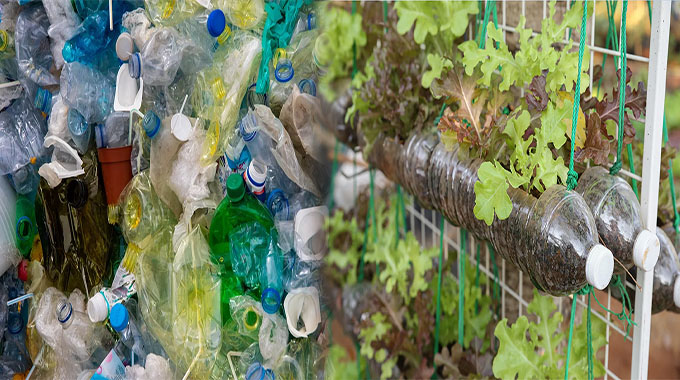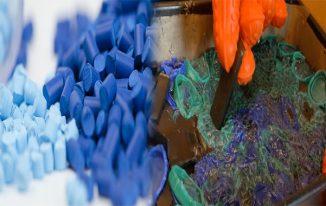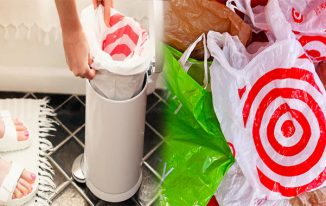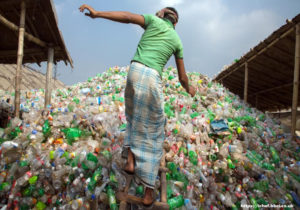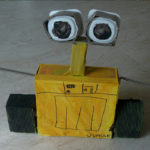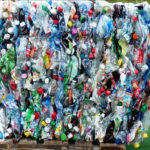It can be hard to know what to do with plastic waste. It’s everywhere, but it’s not always easy to recycle it. Luckily, there are plenty of ways to reuse or repurpose old plastic containers and bags so you don’t have to throw them away!
Recycle your plastic containers.
Plastic containers can be recycled. Look for the triangle with the number 1, 2 or 5 on it. Recycle your plastic containers by putting them in the blue bin.
If you have any other questions about recycling at home, please visit www.ottawa.ca/recycle or call 3-1-1 (311).
Turn old plastic containers into something useful.
When you’re done with your plastic containers, don’t just throw them out! There are many ways to reuse old plastic containers for storage, crafts and more.
- Use them as food storage containers in the kitchen. You can store leftovers or fresh produce in these. They’re also great for keeping dry goods like sugar or flour from getting contaminated by moisture. If you have kids who like to play with their food (or pets who do), this might be a good option for them!
- Make small items like buttons or beads into jewelry by storing them inside of plastic containers that have lids on top of each other–it’ll keep all those tiny pieces together so no one loses anything important during cleanup time later down the road when everyone’s ready to get back outside again after lunch break is over;)
Another idea would be using some old Tupperware™ containers: they’re perfect size-wise since most people only want one serving size per meal anyways so if anything gets left over then we just throw away half full containers later when nobody else wants any more either 🙂
Keep a plastic bag collection for recycling.
- Keep a plastic bag collection for recycling.
- Put them in a box or basket, and keep it somewhere you can see it.
- Do not put them in the recycling bin, as they will be sent to landfill instead of being recycled.
- Do not put them in the garbage either – they will end up as litter on our streets and beaches!
Dental floss is made from recycled plastic!
Floss is made from plastic, and that’s not all. It turns out that this everyday item is also a great example of how recycled materials can be used to make something new. Dental floss can be made from recycled plastic because it’s strong and flexible enough to clean between your teeth without breaking or shredding.
This isn’t just true for dental floss–plastic waste is valuable in many ways! When you recycle plastic at home, you’re helping protect the environment by keeping harmful chemicals out of landfills and rivers/streams where they could harm wildlife as well as yourself if ingested accidentally (or on purpose). Recycling also reduces energy consumption because less raw materials are needed during production processes such recycling centers use less energy than manufacturing facilities do when creating new products out of virgin materials like wood chips or cotton fibers
In addition to these benefits there are economic considerations as well: recycling keeps valuable resources out of landfills while saving money on disposal costs; moreover recycling programs create jobs within communities where they operate
Recycling is a great way to save money, energy, and the environment.
Recycling is a great way to save money, energy and the environment. Recycling helps you save money because it reduces the amount of waste that goes into landfills. This means there will be less space for trash to fill up in landfills which costs money because it costs more to build new landfills than to maintain existing ones.
Recycling also saves energy because instead of creating new plastic from raw materials like coal or oil; we can just reuse old plastic products by melting them down into new ones! This means less fossil fuels being burned and fewer greenhouse gases being released into our atmosphere contributing towards global warming effects such as rising sea levels due too melting polar ice caps etcetera…
Lastly recycling helps reduce pollution (including air pollution) caused by manufacturing processes needed in order create new products out from scratch rather than just reusing existing ones already made before hand.”
With these tips, you can easily make a difference in your community and help the environment. You don’t have to be an expert on recycling or waste management–just use what you know about plastic containers and dental floss!

